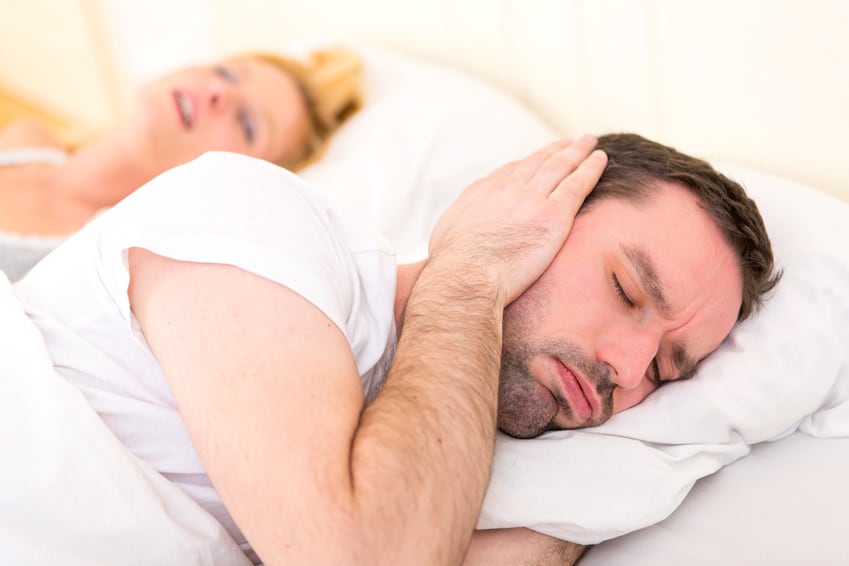The True Causes of Sleep Apnea
 Obstructive sleep apnea (OSA) is a condition that has numerous stereotypes associated with it. Perhaps you’ve heard that it only affects men or overweight individuals or maybe you’ve been lead to believe that the sole treatment option available is a scary-looking mask called a CPAP machine. However, the reality is that obstructive sleep apnea can affect people of all backgrounds and walks of life. This is why it is so important to examine the true causes of sleep apnea in order to understand how the disorder can impact different people in different ways. Furthermore, it will help you identify the next steps for seeking treatment.
Obstructive sleep apnea (OSA) is a condition that has numerous stereotypes associated with it. Perhaps you’ve heard that it only affects men or overweight individuals or maybe you’ve been lead to believe that the sole treatment option available is a scary-looking mask called a CPAP machine. However, the reality is that obstructive sleep apnea can affect people of all backgrounds and walks of life. This is why it is so important to examine the true causes of sleep apnea in order to understand how the disorder can impact different people in different ways. Furthermore, it will help you identify the next steps for seeking treatment.
In this blog, the dental sleep specialist at eos dental sleep will provide a clear definition of what sleep apnea is, its symptoms, its causes and its risk factors.
What is obstructive sleep apnea and what are the symptoms?
Obstructive sleep apnea is a serious sleep disorder that is characterized by airway obstructions that lead to pauses in breathing during sleep. In fact, a person with OSA may stop breathing 20 or more times per hour. Although one of the telltale signs of sleep apnea is chronic snoring, this is far from the only possible symptom.
Symptoms associated with obstructive sleep apnea include:
- Choking or gasping sounds during sleep
- Excessive daytime sleepiness
- Regularly waking up with a dry mouth or sore throat
- Memory loss
- Trouble concentrating
- Irritability, depression and mood swings
What are the key causes of sleep apnea?
Even with the same diagnosis of sleep apnea, no two patients have exactly the same type of disorder. This is because the airway obstruction that causes the pauses in breathing may be the result of different factors for different people.
Obstructive sleep apnea can be caused by a blockage in the airway related to any of the following structures:
- Tongue – The tongue is one of the most common sources of airway obstruction. Whether you have a large tongue, weak tongue muscles or you commonly sleep on your back, any of these factors can lead to the tongue’s tendency to fall back into the throat during sleep.
- Nose – Problems in the nose can factor into regular or worsening snoring for various reasons. A deviated septum, nasal congestion, turbinate hypertrophy, or allergies can all create nasal congestion or obstruction, intensifying snoring and making it harder to get the necessary air as you sleep.
- Soft Palate – Excess soft tissue from an elongated soft palate or a large uvula can also create airway blockage – either partial or complete – leading to pauses in breathing and/or loud snoring that has a “sawing” sound.
- Tonsils – Just like extra soft palate tissue, large tonsils can play a part in breathing obstruction and loud snoring. Symptoms may worsen with throat infections too.
What are the factors that increase your risk for sleep apnea?
Aside from the primary causes of sleep apnea, there are a number of factors that can put you at a higher risk for having airway obstruction, including:
- Sleeping on your back
- Consuming alcohol or sleep aids
- Older age
- Being overweight
- Large neck circumference
- Smoking
How are the causes of sleep apnea diagnosed?
Since the causes of sleep apnea vary from person to person, a thorough examination is the first step to identifying what is triggering your airway blockage and how severe the problem is. eos dental sleep offers a simple diagnostic test for sleep apnea that can be completed from the comfort and convenience of your own bed. This test, called a home sleep study, tracks your breathing and other vitals as you sleep. The next day, you return the testing device to the doctor and the data will be evaluated to make a definitive diagnosis.
Treat the Causes of Sleep Apnea at the Source
While the causes may be different between sleep apnea sufferers, one fact is indisputably the same – sleep apnea is a serious medical condition that can have grave health consequences if left untreated. Given the convenience and ease of home sleep testing, there are minimal obstacles to prevent you from getting evaluated and identifying the causes of your problem once and for all.
If you’re still not certain whether you should seek medical attention, we urge you to take the Sleep Apnea Diagnostic Quiz, a brief assessment that tells you your risk level for having OSA. Or, if you’re ready to schedule your consultation with the dental sleep specialist at our Philadelphia office, you can get started by filling out the appointment form right on this page or by contacting us.
